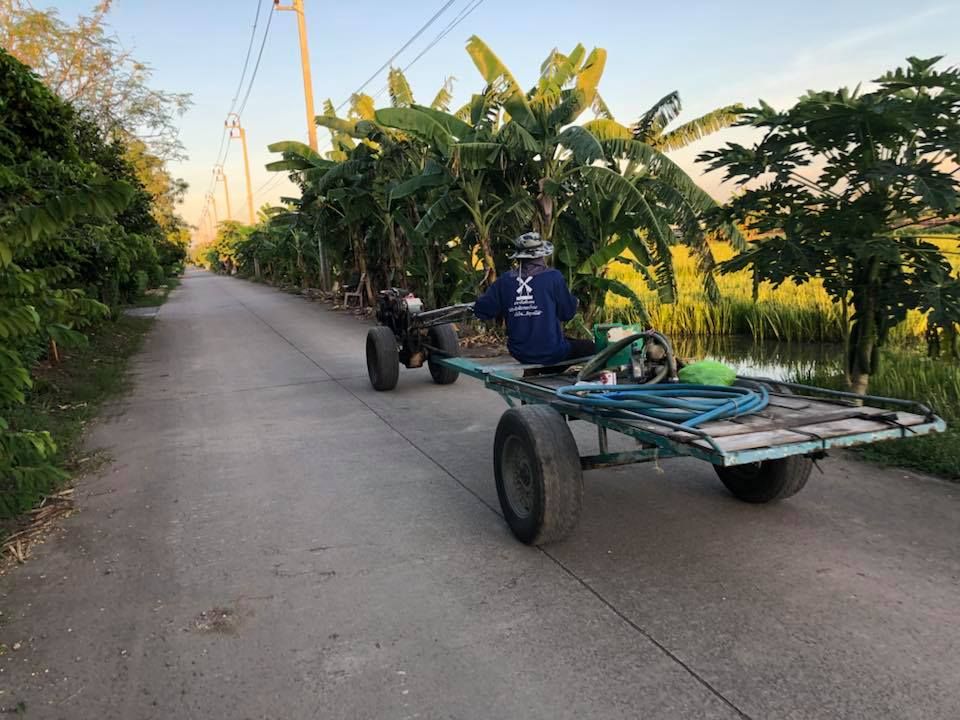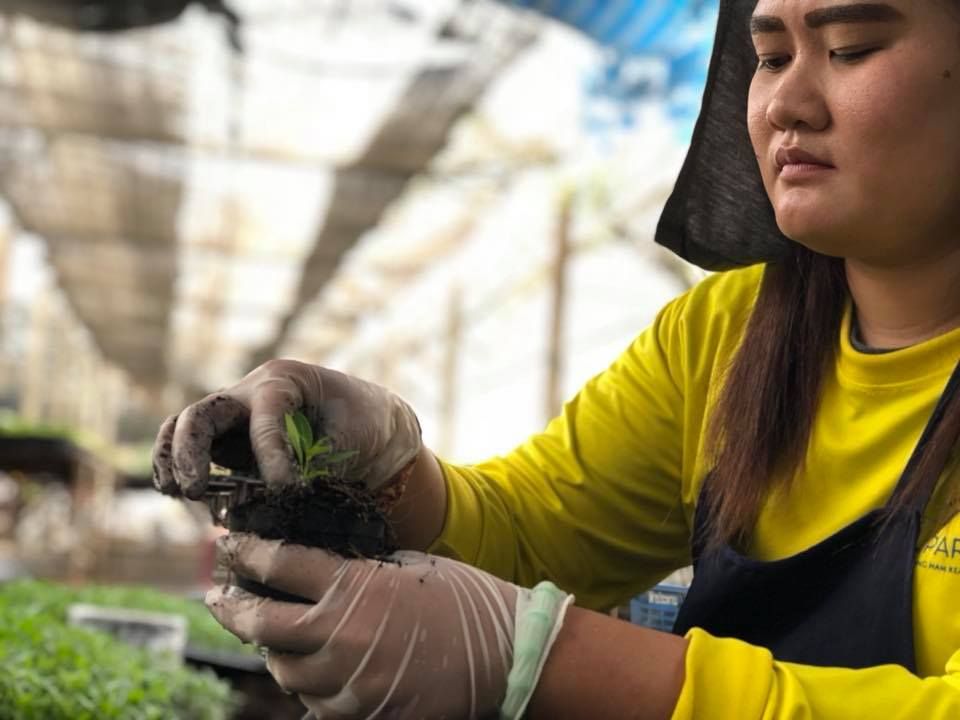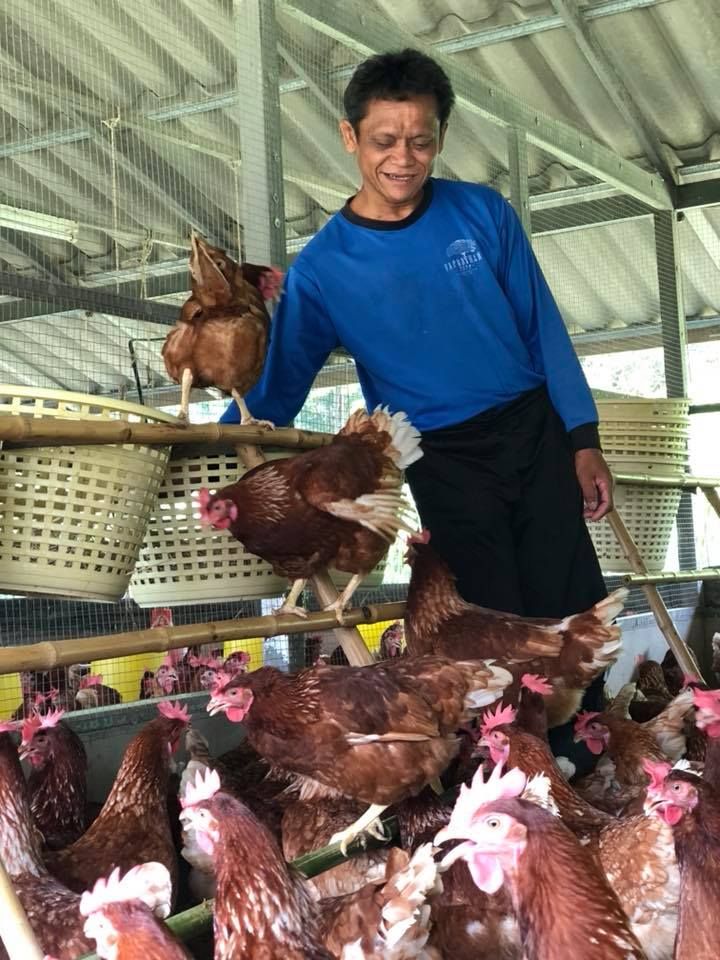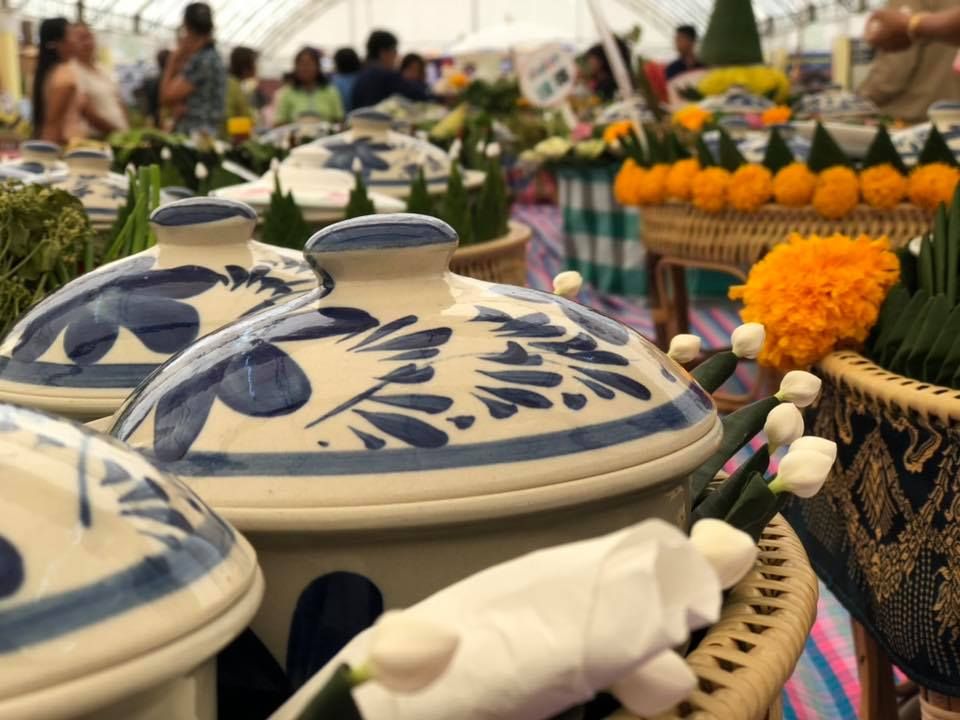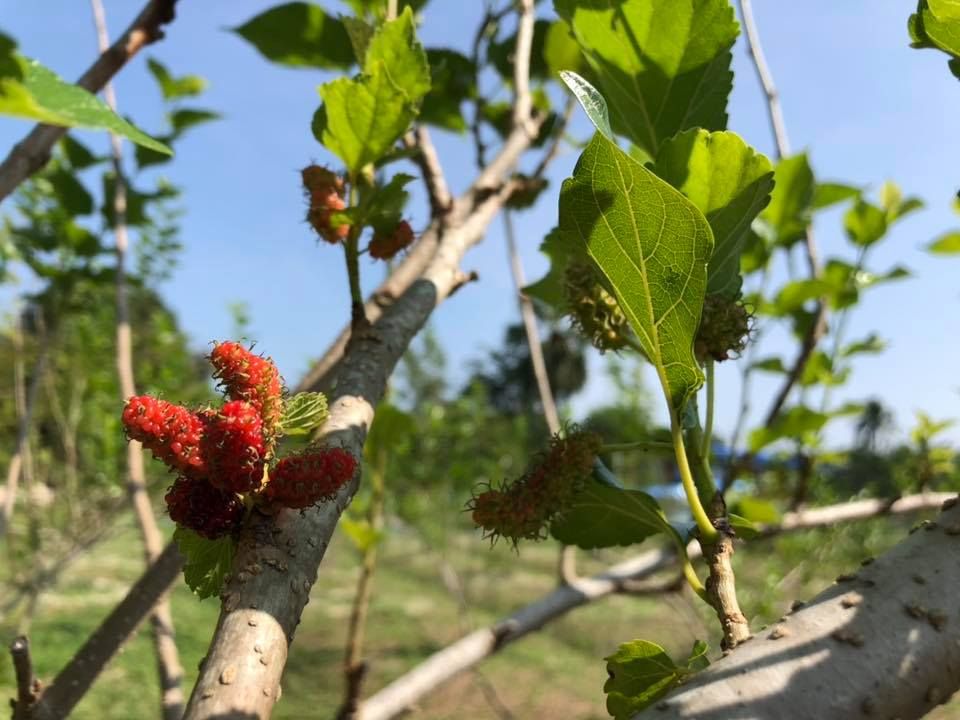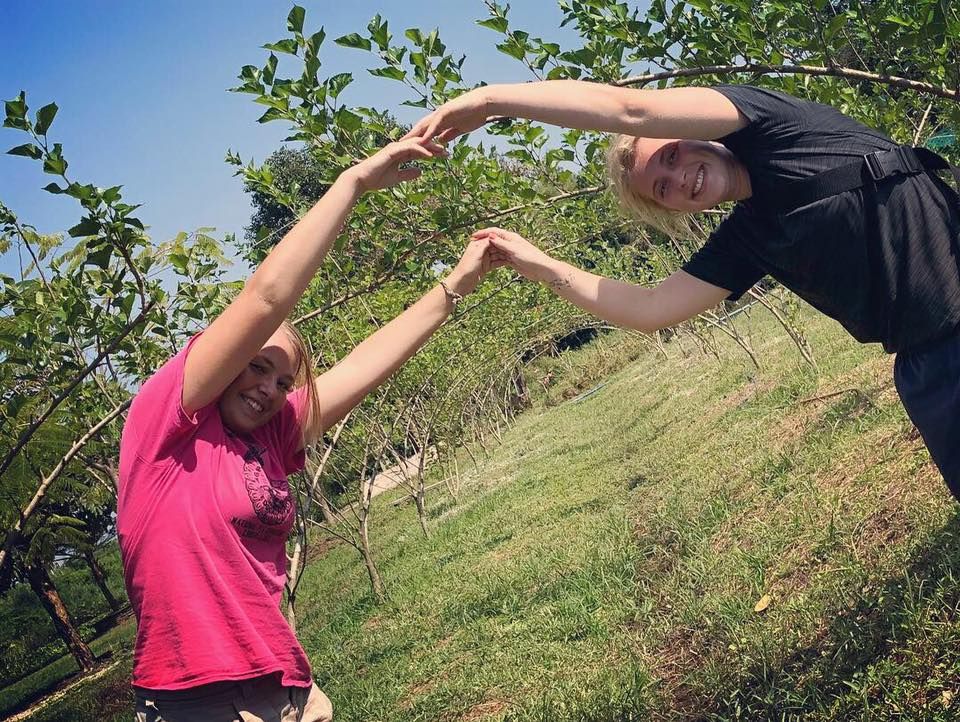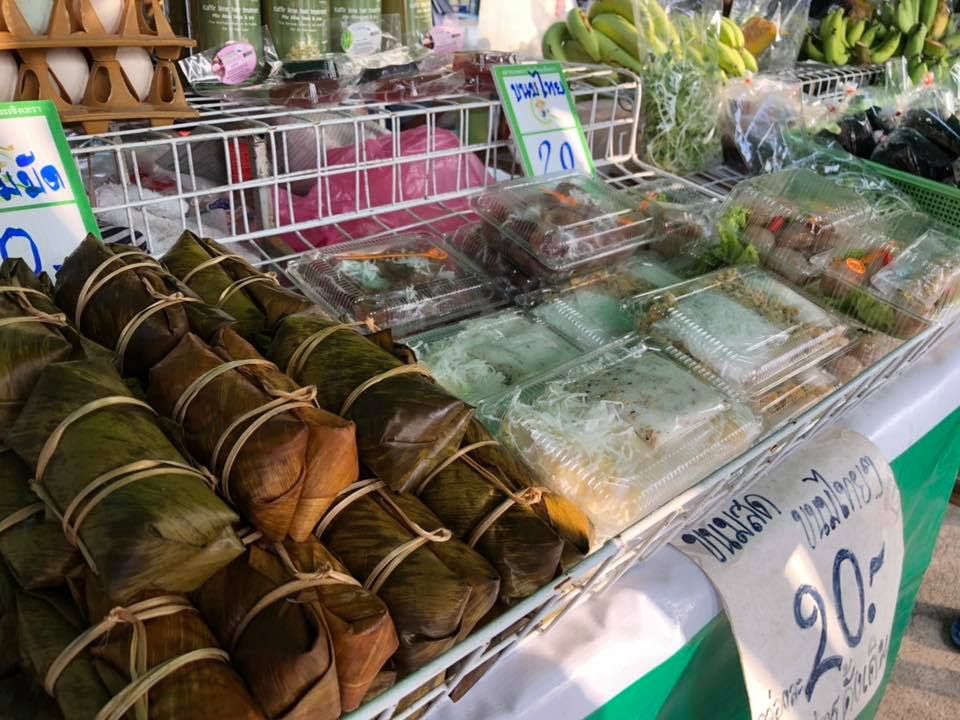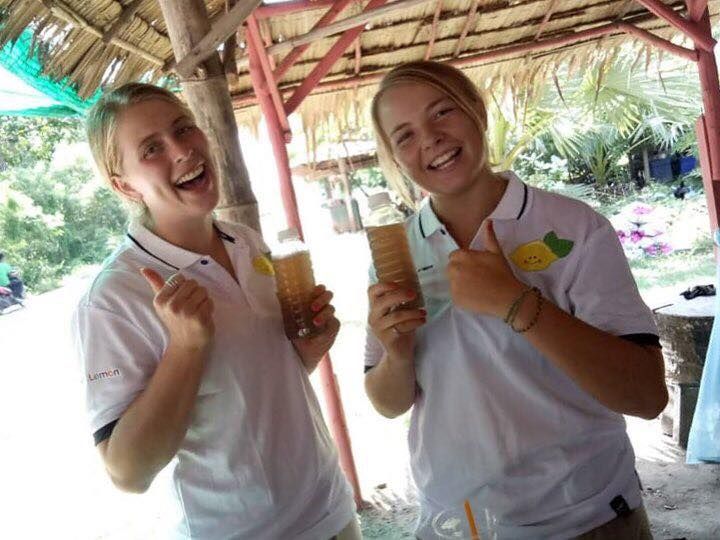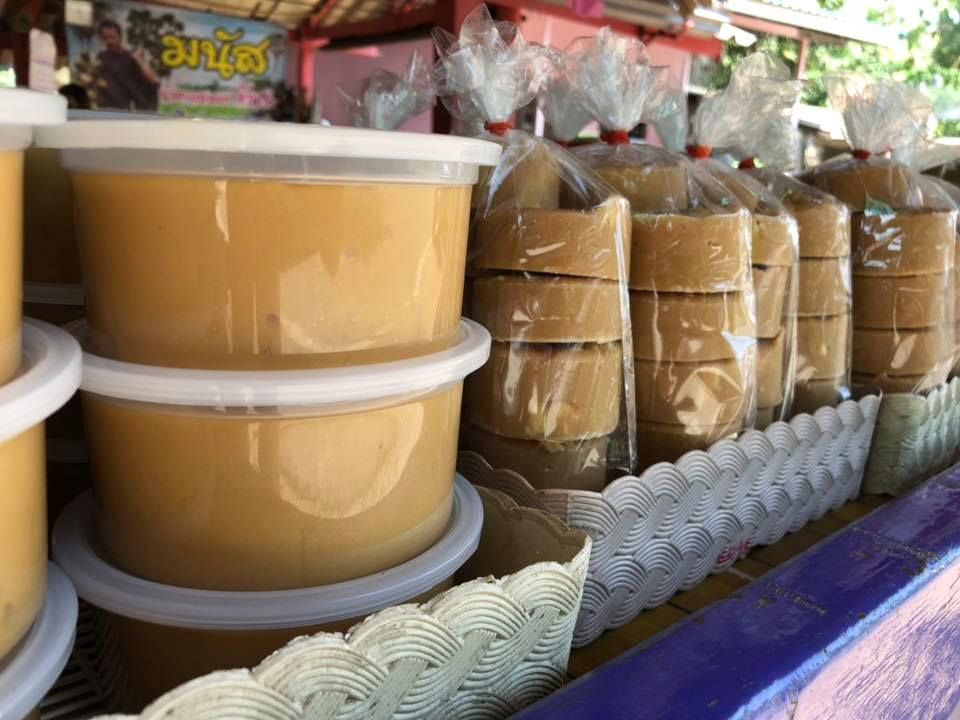Foreign Exchange Program
Hannah Nordby - IFYE Participant - Taiwan/Thailand Parts 1 - 7
Hannah Nordby posted updates of her IFYE Experience to her own Facebook page, which we are sharing with you here.
| Part 1 | Part 5 |
| Part 2 | Part 6 (below) |
| Part 3 | Part 7 |
| Part 4 |
This is Part 6 of Hannah Nordby's IFYE Experience detailing her travels in Thailand during the month of October along with Amanda Braun.
October 1, 2018
In the evenings one of my favorite things to do is go for walks around the neighborhood. The scenery is a little different than back home but there’s still a lot of beauty if you're willing to open your eyes to it. Hope you enjoy the pictures as much as I enjoyed taking them.
October 3, 2018
Today Amanda and I helped transfer some seedlings at Faprathan Flora Park!From seed to plant here are the steps- and just like I got quizzed today there will be questions at the end;).
- Mix Media (from Germany) with water until moist.
- Spread media-layer 1, over trays. Thump, thump, thump. Spread media- layer 2 over trays. Thump, thump, thump.
- Plant seed 0.5 cm deep. Sprinkle media- layer 3 over trays.
- Water and Cover with newspaper- initially only 10% sunlight is needed.
- Do a dance.
- 5 days a little sprout pops up, time to take off newspaper!
- Let plant grow. Do a dance. Take a dance class.
- 20-25 days later transfer seedling from trays to small pots (as pictured by yours truly.
- How much better are you at dancing by the end of this?
They are definitely pros here with 300,000 seedlings planted every year to sell or decorate their garden in preparation for tourist season!
October 6, 2018
I don’t wanna be a chicken, I don’t wanna be a duck, so I shake my butt (clap clap clap clap).
Meet the Happy Hens! This is a cage free facility at the Faprathan Farm. They have roughly 1,200 laying hens that produce around 1,000 eggs a day. Notice the clothes basket? That’s where the hens are trained to deposit their eggs to be collected. The gathered eggs are used at the farm's restaurant, with the rest being sold to a grocery store!
They buy the hens at 4 months of age when they are mature enough to lay eggs and keep them until 1 year. After a year all the hens are sold to the Faprathan Farm workers and new hens are bought!
October 10, 2018
In the Buddhist faith Monks cannot cook. Additionally, depending on the degree a Monk follows Buddhism they are only allowed to eat 1-2 times a day and only before 11 AM.
In the mornings followers bring or donate food daily to Monks. Before eating Monks perform a chant and offer some food to a Buddha image. They perform some additional chants before enjoying some of the food themselves.
Leftover food is never wasted, it can be given to visitors, volunteers or other workers at the temple, even shared in return with the followers who brought the food.
October 11, 2018
These are White Mulberries originating from northern China, as they ripen they will turn red or purple. As the trees grow the farmer is attaching the branches together with string to creating a tunnel shape. Not only will this look BEAUTIFUL there is a conventional purpose of making harvest of the mulberries easier for everyone involved!
In Thailand because they really don’t naturally have a “dormant” season (unlike our 6+ month winter) they artificially produce one by trimming all the leaves and then withholding water. This allows the trees to focus storing nutrients in the stem and gives it a break from constant fruit production. After two weeks irrigation begins again and the trees replenish their leaves and begin fruit production.
October 12, 2018
In Thailand they have morning market, afternoon market, night market, evening market, weekend market...I think you get the point.
Amanda and I visited a farmers market where area farmer can sell their produce in the mornings three times a week! A spot in the designated farmers sections is 100 baht whereas the general section is 20 baht. The higher price comes with being in the area where consumers are guaranteed that the produce comes straight from farmers...no middleman here!
For you reference 30 Thai baht is roughly equivalent to 1 USA Dollar. Food is really cheap here in Thailand, One dish can range from 30-100 baht. Often times people go to a market where there is an array of hot and ready products!
Farmers in Thailand also face the challenge of receiving only a small percentage of every baht consumers spend on food. Selling directly to consumers themselves increases that profit margin and gives a face to the produce!
October 13, 2018
This is palm juice, more specifically Asian Palmyra Palm juice! Farmers harvest a sweet sap (toddy) from young plants. Two things can be done with the sap:
- Mix with some ice and sell as juice!
- Heat and boil off the water, leaving a sugar substance!
All along the roads in Thailand there are shacks selling everything from coffee to eggs! We stopped at this “sugar shack” to try the palm juice out for ourselves and weren’t disappointed! The father even took the time to show us how he climbs into trees to essentially “tap” and attach a large cylinder container to collect the sap.
Thank you to Tonaor Lertmongkol and your family for sharing about your product with a couple strangers from the United States! It was nice to meet you and good luck selling!
Read Part 1 of Hannah's Experience
Read Part 2 of Hannah's Experience
Read Part 3 of Hannah's Experience
Read Part 4 of Hannah's Experience



